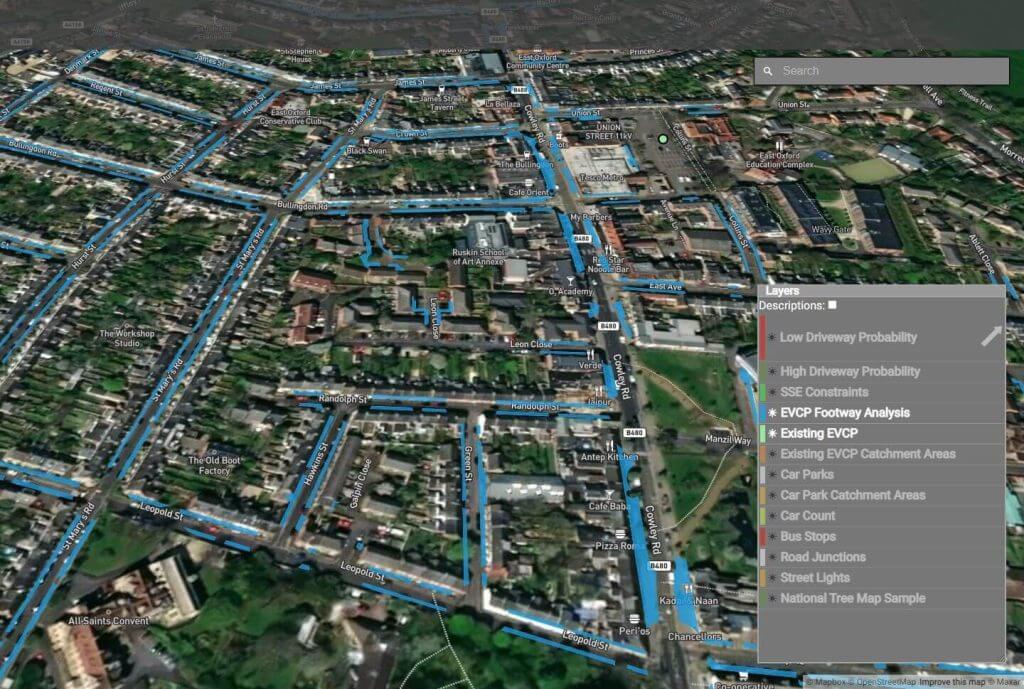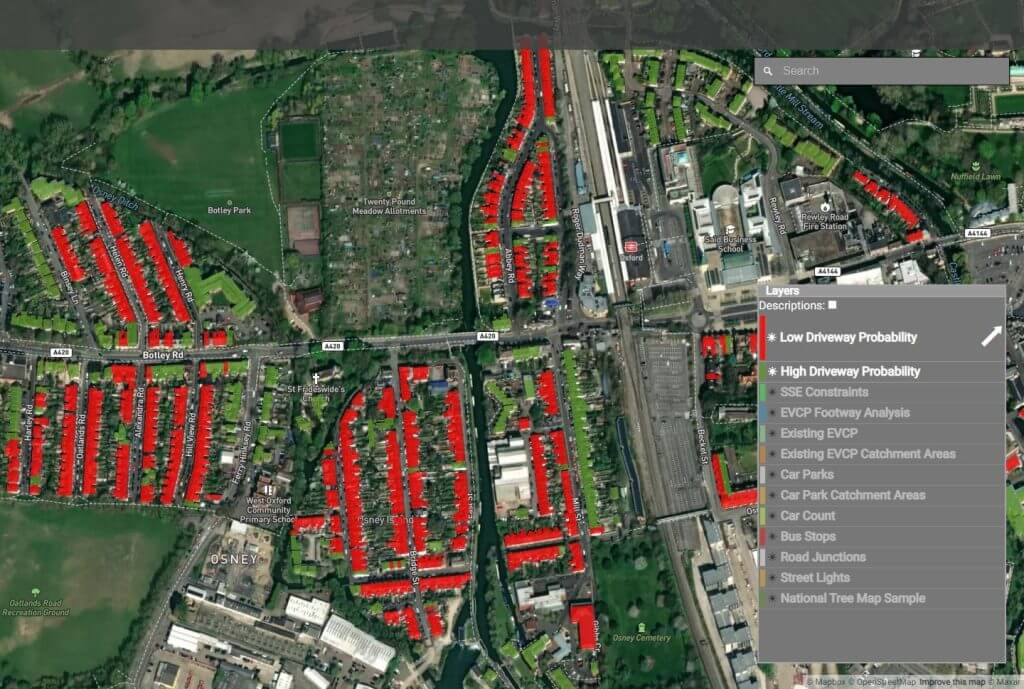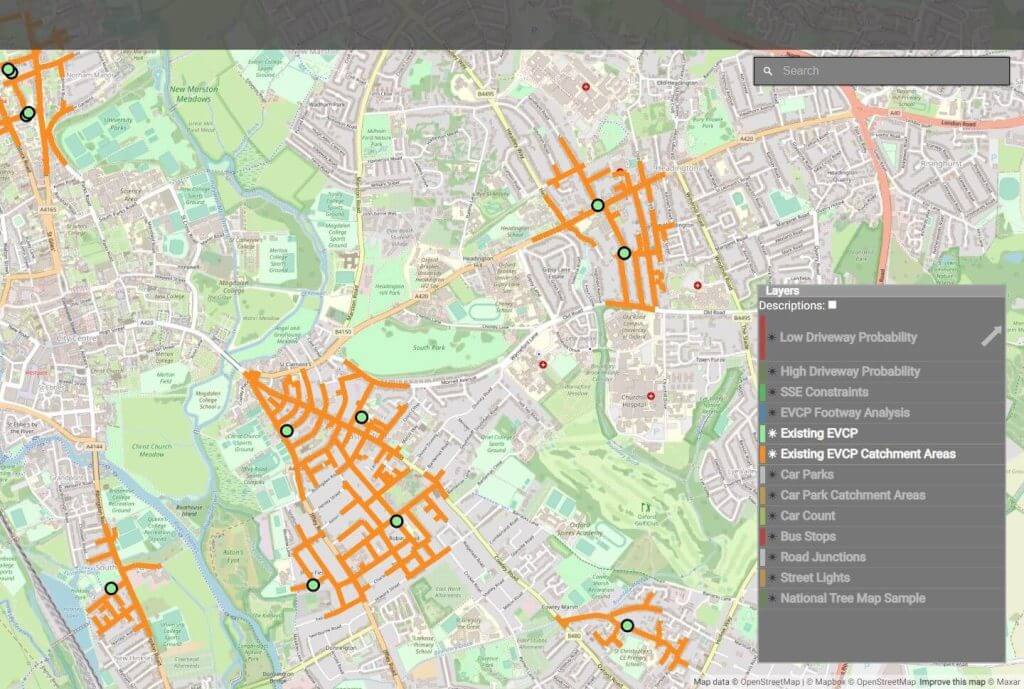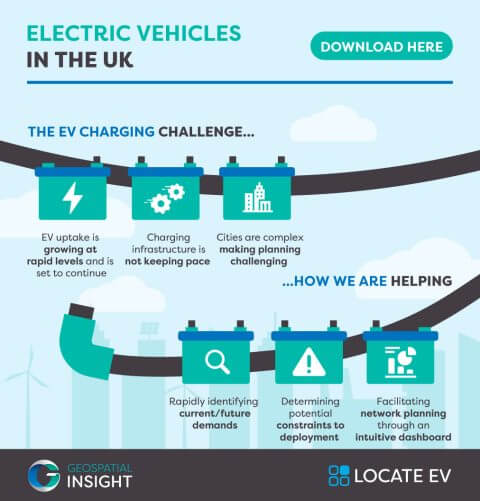E MOBILITY
Electrifying urban mobility, to decarbonise the transport system and minimise air pollution
With rapid, continued growth in the volumes of Electric Vehicles (EV) on our roads, and a new vehicle petrol and diesel ban confirmed for 2030 in the UK, we deliver accurate geointelligence that accelerates the deployment of EV charging infrastructure, supporting a range of stakeholders in their drive towards a net-zero urban landscape.
Decarbonising the transport sector
In dense urban areas, with large numbers of vehicles, high emission levels and poor air quality, the challenge to implement a practical EV infrastructure simply must be met. It is estimated that 290 million charging points will be required globally by 2040, at an investment of $500 billion – but currently deployment is not keeping pace with rapid EV uptake. The complexities of a city landscape can make charge point installation a daunting prospect, but, through the deployment of proven geointelligence solutions, we can support EV roll-out strategy development and implementation in a scalable and cost effective manner.

Busy London Street

Footways analysed for charging bollard potential, Oxford
Sustainable Mobility Strategies
Through our EV focused analytics and software we are supporting the strategic planning and implementation of e mobility infrastructure. We digitalise the site selection and survey process, simplifying the identification and assessment of potential sites without the need to deploy staff across the city. Our services support applications including EV charge point roll out, bus and cycle lane implementation, Connected Autonomous Vehicle route planning, vehicle air pollution analysis, on-street parking levels and behaviour, pedestrian travel, street light upgrades and more.
EV Charging Assessment
Detailed urban intelligence surrounding pavement and road geometries, off-street parking availability, traffic volumes, power network constraints, and on-street parking behaviour to enable to development of EV infrastructure strategies. The urban analysis can be complemented by socio-demographic profiling to integrate behavioural data with information on the physical environment.

Driveway probability analysis, Oxford

EV charger locations and calculated catchment areas, Oxford
Charging Network Visualisation & Planning
Via the LOCATE EV platform EV infrastructure stakeholders can rapidly visualise and contextualise critical intelligence that will inform and influence their charging network strategy, and additionally can view sites at a street level, develop implementation plans and export asset reports.
Related INSIGHTS

Char.gy and Geospatial Insight Forge Strategic Partnership to Revolutionise EV Infrastructure Planning
Char.gy and Geospatial Insight have officially joined forces to leverage the power of LOCATE EV, the National EV Infrastructure Planning Platform.

Market-Leading Zapmap Data Now Available on LOCATE EV, Accelerating Electric Vehicle Network Planning
Geospatial Insight, a prominent provider of clean energy geospatial solutions in the UK, and Zapmap, the UK’s leading charge point mapping service, have launched a new strategic collaboration. The partnership includes the integration of Zapmap data into LOCATE EV, the National Electric Vehicle Network Planning Platform.
